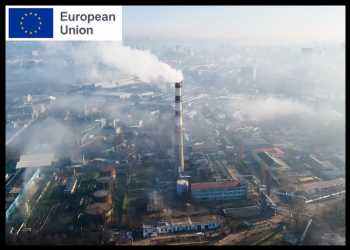
Deal On New EU Regulation To Cut Methane Emissions
The European Parliament and Council have reached a provisional agreement on a new EU Regulation to reduce energy sector methane emissions in Europe and in its global supply chains.
Methane is a powerful greenhouse gas – the second biggest contributor to climate change after carbon dioxide (CO2) – and is also a potent air pollutant. Wednesday’s agreement is crucial to delivering the European Green Deal and reducing the bloc’s net greenhouse gas emissions by at least 55 percent by 2030.
The proposed rule will oblige the fossil gas, oil and coal industry to properly measure, monitor, report and verify their methane emissions according to the highest monitoring standards, and take action to reduce them.
The agreement comes just a few weeks ahead of COP28, where the EU will continue its engagement with international partners on reducing methane emissions, the European Comission said.
The Regulation aims to stop the avoidable release of methane into the atmosphere and to minimise leaks of methane by fossil energy companies operating in the EU.
It requires operators to report regularly to the competent authorities about quantification and measurements of methane emissions at source level, including for non-operated assets.
The proposed rule obliges oil and gas companies to carry out regular surveys of their equipment to detect and repair methane leaks on the EU territory within specific deadlines.
It bans routine venting and flaring by the oil and gas sectors and restricts non-routine venting and flaring to unavoidable circumstances.
The rule limits venting from thermal coal mines from 2027, with stricter conditions kicking in after 2031.
It requires companies in the oil, gas and coal sectors to carry out an inventory of closed, inactive, plugged and abandoned assets, such as wells and mines, to monitor their emissions and to adopt a plan to mitigate these emissions as soon as possible.
The European Union imports a large share of the oil, gas and coal it consumes. This Regulation will also tackle the methane emissions related to these imports.
Source: Read Full Article